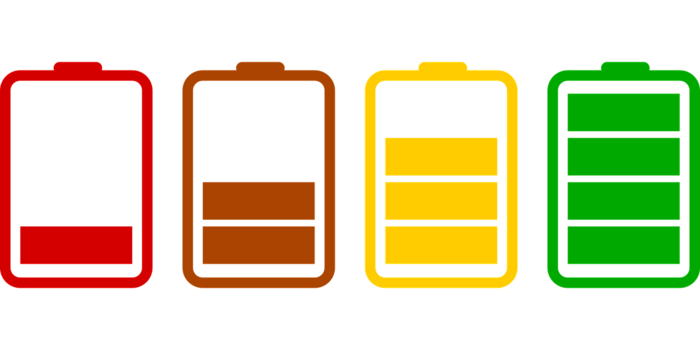A review of 22 previously published studies suggests that taking micro-breaks—discontinuing a task for periods of 10 minutes or less—is generally associated with reduced fatigue and increased vigor. Patricia Albulescu of the West University of Timioara, Romania, and colleagues present these findings in the open-access journal PLOS ONE on August 31, 2022.

Credit: Michał Jamro, Pixabay CC0 (https://creativecommons.org/publicdomain/zero/1.0/)
A review of 22 previously published studies suggests that taking micro-breaks—discontinuing a task for periods of 10 minutes or less—is generally associated with reduced fatigue and increased vigor. Patricia Albulescu of the West University of Timioara, Romania, and colleagues present these findings in the open-access journal PLOS ONE on August 31, 2022.
Concerns are rising over the heavy workloads and long shifts faced by many employees currently in the work force. An increasing number of studies explore various aspects of employee energy management and recovery, often focused on recovery after the workday is over. However, the potential effects of recovery processes during the workday remain unclear.
To improve understanding, Albulescu and colleagues conducted a meta-analysis of 22 studies from 19 manuscripts published within the last 30 years, all of which examined the potential benefits of taking micro-breaks from assigned tasks. Tasks varied between experiments and included work simulations, real work-related tasks, and non-work-related cognitive tests. Types of breaks varied as well, including physical breaks, relaxing activities, and more engaging activities, such as watching videos.
Statistical analysis of the combined study results revealed an overall association between micro-breaks, higher levels of vigor, and lower fatigue in participants, suggesting that micro-breaks may contribute to wellbeing.
No overall association was found between micro-breaks and better performance on tasks. However, when taking a closer look at the data, the researchers did find that longer breaks tended to be linked to better performance, especially for creative or clerical tasks, but less so for more cognitively demanding tasks.
These findings support micro-breaks as a potential strategy for boosting wellbeing in the workplace. However, when it comes to job performance, longer breaks may be needed for recovery from more cognitively demanding tasks. Future research could investigate longer breaks as well as address other remaining questions, such as optimal activities to engage in during a micro-break.
The authors add: “Our results revealed that micro-breaks are efficient in preserving high levels of vigor and alleviating fatigue.”
#####
In your coverage please use this URL to provide access to the freely available article in PLOS ONE: https://journals.plos.org/plosone/article?id=10.1371/journal.pone.0272460
Citation: Albulescu P, Macsinga I, Rusu A, Sulea C, Bodnaru A, Tulbure BT (2022) “Give me a break!” A systematic review and meta-analysis on the efficacy of micro-breaks for increasing well-being and performance. PLoS ONE 17(8): e0272460. https://doi.org/10.1371/journal.pone.0272460
Author Countries: Romania
Funding: The work of A.R. was supported by a grant of the Romanian Ministry of Education and Research, CNCS – UEFISCDI, project number PN-III-P1-1.1-TE-2019-2032, within PNCDI III.
Journal
PLoS ONE
DOI
10.1371/journal.pone.0272460
Method of Research
Meta-analysis
Subject of Research
People
Article Title
“Give me a break!” A systematic review and meta-analysis on the efficacy of micro-breaks for increasing well-being and performance
Article Publication Date
31-Aug-2022
COI Statement
The authors have declared that no competing interests exist.




